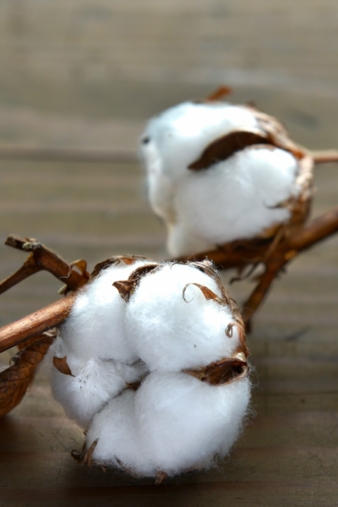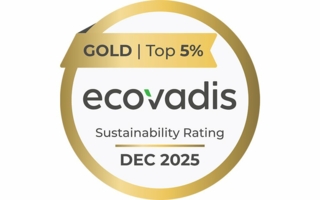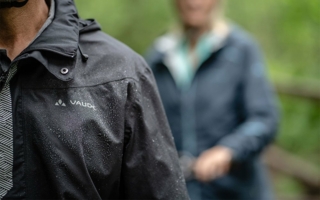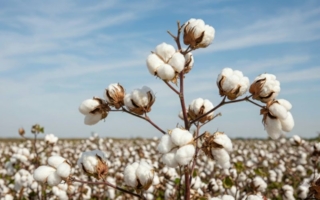05/02/2020 – Passion for Cotton! — auf Deutsch lesen
35th International Cotton Conference Bremen
The “Circular Economy” will be one of the most widely discussed industry subjects at the upcoming International Cotton Conference in Bremen.
In essence, the conference deals with the lifecycle of the natural, renewable raw material cotton in the sense of a circular economy. Following a “cradle to cradle” process, the cycle begins with its natural origin and runs through various processing stations before it is then returned to its biological origin.
As a result of its growing economic and social importance, the subject will be given its own separate, dedicated programme item with the headline “Circular Economy - The Future” on Thursday 26 March.
Panel discussion with top-class participants
There will be a two-hour central panel discussion of the conference led by Simon Ferrigno from Derby, UK. Simon Ferrigno is a well-known specialist in sustainable and organic production systems, author and contributor to various specialist publications.
His discussion partners include Rainer Hengstmann, owner of the consultancy firm Go4More Global from Erlangen, Germany. He believes that any business activity will perform poorly if it disregards the principles of transparency and sustainability. This is due to the high level of market networking and changing regulatory scenarios. From this perspective, it is time to rethink existing business models.
Kjersti Kviseth, Jar, Norway, is the owner of the 2025 design agency. She specialises in lifecycle design and has developed principles for circular design. Here, issues such as upcycling and recycling play a major role. In 2019, she won the Ispo EcoAward for her work.
Rolf Heimann is Chairman of the Hessnatur Foundation, Berlin, Germany and has been active in textile ecology for more than 20 years. He has developed environmentally friendly and biodegradable dying systems and coatings for textiles. The mail order and retail company Hessnatur has been one of the pioneers in the market for sustainable cotton and woollen textiles since it was founded in 1976.
Mary Ankeny is Vice President, Product Development & Implementation Operation at Cotton Incorporated, Cary NC, USA. Among other things, Cotton Incorporated deals with research questions concerning the biodegradability of cotton and other fibres, as well as with the subject of “cotton’s next life” outside of the classic clothing supply chain.
Ernst Grimmelt is Managing Partner of spinner and weaver Velener Textil in Velen, Germany. Two years ago, his company developed a product branded as “Wecycled”, in which processed production residues from the spinning and weaving mill are converted back into individual fibres. With the addition of fresh cotton, they can be turned into high quality yarns and fabrics. The result is that leftovers are no longer disposed of unused but processed into new products.
Ecological and economic benefits put to the test
The aim of the panel discussion is to draw a picture of the current situation of the circular economy. In addition to the ecological benefits, it will also question the economic viability of processes. Advantages and disadvantages should become clear. In the context of recycling, chemical and mechanical processes for the production of new products and questions about the biodegradability of fibres and textile products will be discussed. Here, it remains to be stated that cotton, like all cellulose fibres, can be added to the biological cycle without any difficulty due to its rapid biodegradability.
About the International Cotton Conference
The International Cotton Conference Bremen begins for trade visitors on Wednesday, 25 March 2020. The opening keynotes from qualified speakers will deal with the status quo and the challenges of the industry. The subsequent, thematically structured sessions are characterised by top class lectures on industry-related questions along the supply chain. The topic of circular economy and the consideration of the life cycle of cotton, viewed from different perspectives, is a thread running through the programme.
Up to 500 participants from all continents are expected to attend the Cotton Conference, with research and practice equally represented. The 35th International Cotton Conference forms the core of the Bremen Cotton Week. This includes meetings of the various cotton and textile trade associations, as well as the “Sustain” conference, which is taking place in cooperation with the newspaper “Weser-Kurier”.
This year “Sustain” will focus on future issues of the retail trade and its importance for the vitality of inner cities.




